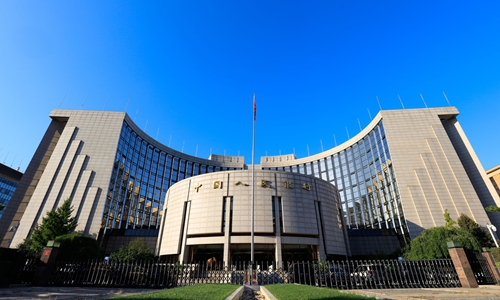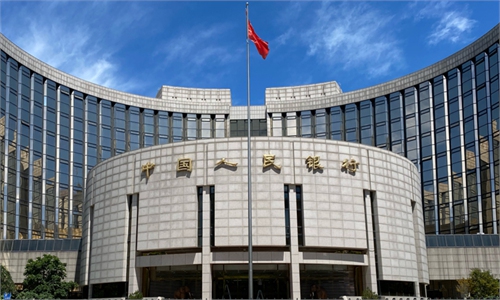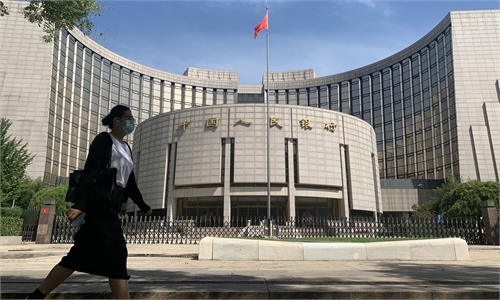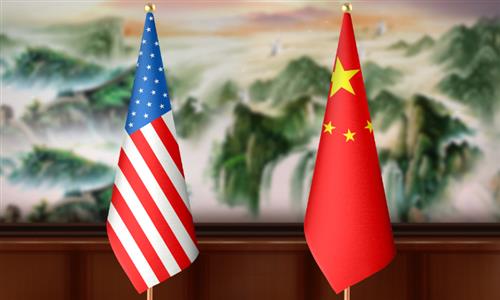
A view of the PBC's headquarters in Beijing Photo: cnsphoto
The People's Bank of China (PBC), the central bank, on Wednesday injected a net 600 billion yuan ($92.7 billion) into the banking system through the medium-term lending facility (MLF), the highest level in seven years.
Further reserve requirement ratio (RRR) cuts are still possible to boost liquidity, analysts said.
The PBC on Wednesday said that it would conduct 495 billion yuan of reverse repurchase operations and 1.45 trillion yuan of MLF operations to maintain reasonable and ample liquidity in the banking system and offset the impact of government bond issuance, and appropriately supply medium- and long-term liquidity. The seven-day reverse repo rate and MLF rate remain unchanged.
With 850 billion yuan worth of MLF loans set to expire this month, the operation resulted in a net 600 billion yuan in fresh funds injected into the banking system, the largest amount since December 2016.
The operation was within expectations, Zhou Maohua, a macroeconomist at China Everbright Bank, told the Global Times on Wednesday.
As a result of the substantial issuance of local government bonds, there has been a notable surge in the banking system's requirement for medium- and long-term funding, Zhou said.
Analysts said it's possible the PBC may further cut the RRR around the end of the year to release long-term liquidity.
"The central bank may cut the reserve requirement ratio by 25 basis points around the end of the year to meet the needs for a surge in liquidity," Zhou said.
This year, monetary policy has been proactively implemented, with stable and moderate growth in credit, experts said.
China's yuan-denominated loans rose by 20.49 trillion yuan in the first 10 months of this year, central bank data showed Monday.
In October alone, yuan-denominated loans rose by 738.4 billion yuan, according to the PBC.
M2, a broad measure of money supply that covers cash in circulation and all deposits, climbed 10.3 percent year-on-year to 288.23 trillion yuan at the end of October.
Zhou said it was likely that macro policy would maintain continuity in stabilizing demand and prices, and he said it was possible there would be a proactive and advanced implementation of macro policies toward the end of the year.



